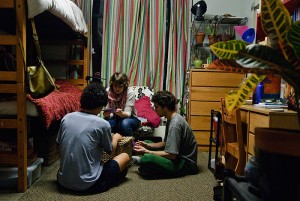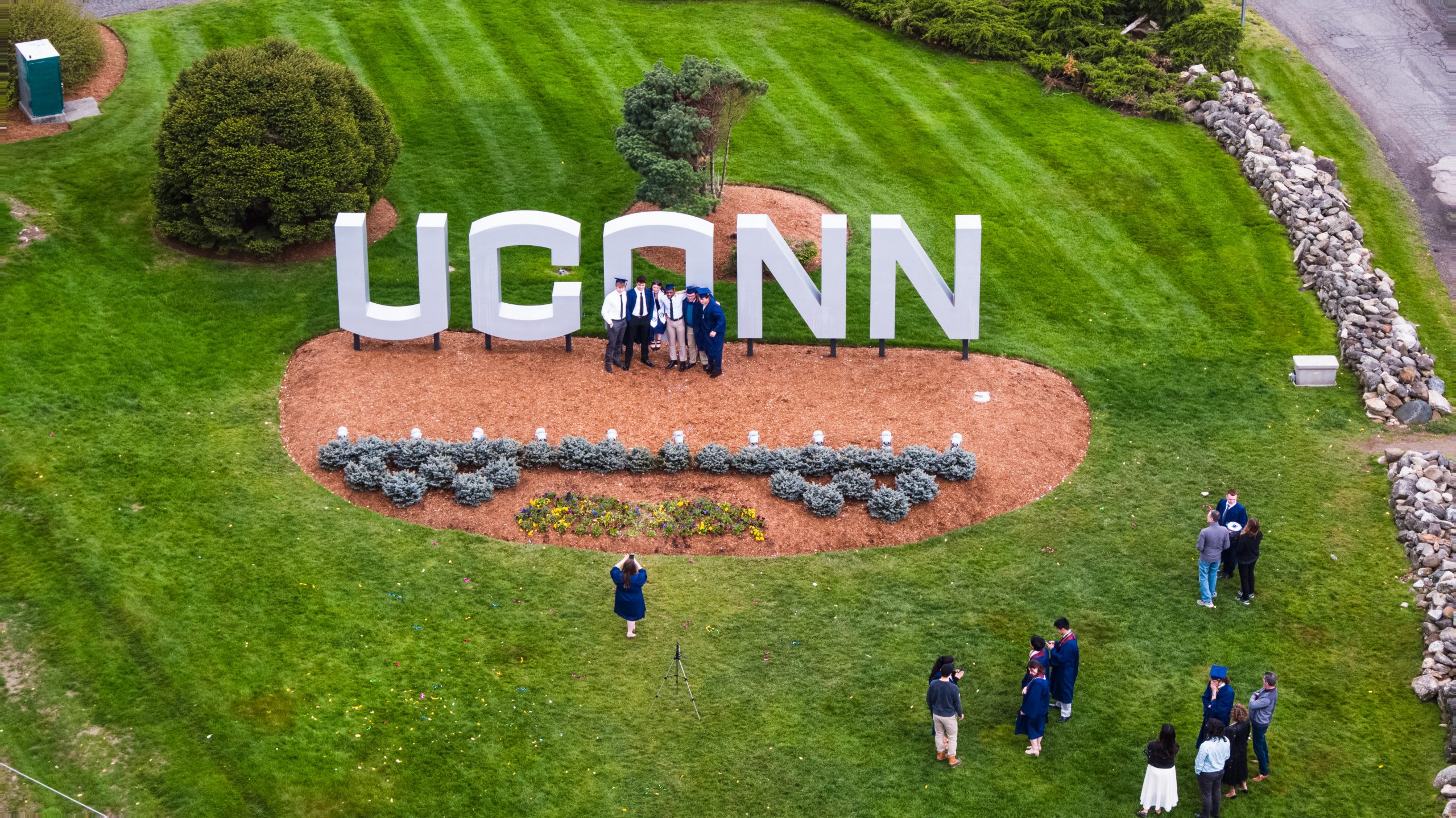
When the Eco-Madness competition results came out this fall, Hollister residence hall, home to the living/learning community EcoHouse, struck out, finishing third in energy savings and well down the pack in water savings. But Mark Westa, a landscape architecture professor and faculty advisor to the group, had a ready answer.
“Since we’re EcoHouse, we started from a higher baseline – we were already saving water and energy,” said Westa with a smile.
Maybe. Maybe not. Either way, EcoHouse, in its first year as one of 23 living/learning communities on campus, is already making a mark, pitching in to help keep UConn clean and green. And if their enthusiasm is infectious, the group’s future should be bright.
“EcoHouse has already made a difference in raising environmental awareness on campus,” says Richard Miller, director of the Office of Environmental Policy. “I’ve seen increased student involvement in events like the Gant Plaza green roof installation, Green Awareness Day during a UConn football game at Rentschler Field, and an environmentally themed acoustical coffee house this semester. A lot of that is directly attributable to EcoHouse volunteers and the example they’ve set.”
With 50 residents, the living/learning program is off to a fast start, rivaling pharmacy and global house for early growth. By next September, the community hopes to add about 70 more students, allowing EcoHouse to occupy all the rooms in Hollister.
“I think we have a chance,” says Jennifer Sayers, part-time coordinator of the house. “Recruiting should be easier next year because we’ll have something to show for it. We’ll kick off the effort in the next few weeks, working with Residential Life, talking to Honors Program students, just getting the word out.”
One thing going for EcoHouse is that it is one of the few interdisciplinary living-learning communities on campus. There are students majoring in environmental fields, to be sure, but there are also students majoring in literature, fine arts, philosophy, and biology, to name a few.
“You don’t have to major in environmental studies to love and want to enhance the environment,” says Westa, the program advisor. “It’s one of the great things about EcoHouse. The environment is important in virtually any field you can think of. “
Danielle Lanslots, a junior from Stamford, does fit the profile, however. An environmental sciences major with a minor in oceanography, Lanslots snapped up the chance to join EcoHouse.
“I was trying to find a way to be more involved, so I called Rich Miller asking about internships, and he mentioned EcoHouse,” says Lanslots.
Once there, Westa and Sayers suggested she join the University’s Environmental Policy Advisory Committee and, at EcoHouse, she joined the group’s action committee, which is “focused on getting things done on campus – issues that we want to address,” Lanslots says.
To date that has included rallying housemates to help with the green roof installation at the Gant Complex, running an environmental day at Rentschler Field during a football game, and “chalk it up nights,” when the group spreads across campus and chalks environmental statistics outside dorms, the Student Union, and other high traffic areas.
“Things like ‘if you took one minute less every time you showered, you could save 150 gallons of water every year,’” Lanslots says.
The committee also is toying with planting a garden next year and, if they can obtain funding and support, installing a green roof on Hollister.
Sustainability-themed residences are not new, but only recently have their numbers and ambitions been growing.
At Dartmouth College, for example, students at the Affinity House have reduced energy use in their house by 58 percent compared to students who lived in the house during the previous five years, perhaps lending credence to Westa’s theory that UConn EcoHouse students will perform well in next year’s EcoMadness contest.


